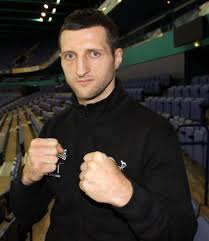
Introduction
Carl Froch is a name synonymous with British boxing. With his fierce fighting style and remarkable achievements, Froch has established himself as one of the greatest boxers in his weight class. His storied career, marked by thrilling matches and memorable moments, continues to resonate with sports fans and aspiring boxers alike. Understanding Froch’s journey offers insights into not just his life but the evolution of boxing in the UK.
Career Highlights
Born on July 2, 1977, in Nottingham, England, Froch’s boxing career began in the amateur ranks, where he gained early recognition for his talent. Turning professional in 2002, he quickly made a name for himself. Froch’s big breakthrough came in 2008 when he claimed the WBC Super Middleweight title by defeating the highly regarded Jean Pascal. This victory solidified his status on the world stage.
Froch’s career is highlighted by iconic battles against notable fighters, including Glen Johnson, Mikkel Kessler, and Andre Ward. His rematch with Kessler in 2013 was particularly noteworthy, drawing significant attention from both fans and media. Froch’s win not only avenged his previous loss but also reinforced his reputation as a fierce competitor.
Froch’s finishing touch in the ring came in 2014 when he announced his retirement after defending his IBF and WBA titles against George Groves in front of a record 80,000 fans at Wembley Stadium. This fight, which Froch won via an 8th-round stoppage, is considered one of the highlights of his career and British boxing history.
Impact on Boxing
Froch’s impact on boxing extends beyond his titles and accolades. He is credited with popularising the sport in the UK, inspiring many young athletes to pursue boxing. His willingness to take on challengers and face the best in the sport has encouraged a new generation of boxers to do the same.
Moreover, Froch’s candidness in interviews and media appearances has helped humanise professional boxers, allowing fans to connect with them on a personal level. He has engaged in commentary and analysis, contributing to the sport’s discourse and promoting new boxing events.
Conclusion
Carl Froch’s legacy is cemented in the annals of British boxing history. His tenacity and fighting spirit have set a precedent for future generations, while his significant matches illuminated the sport on an international scale. As boxing continues to evolve, Froch’s career serves as a benchmark, showcasing the determination and skills required to achieve greatness. Looking ahead, Froch remains an influential figure in boxing, and his story will inspire countless fighters in the years to come.
You may also like

Current Top Movies on Netflix You Should Watch

DAZN’s Comprehensive Coverage of the Super Bowl
